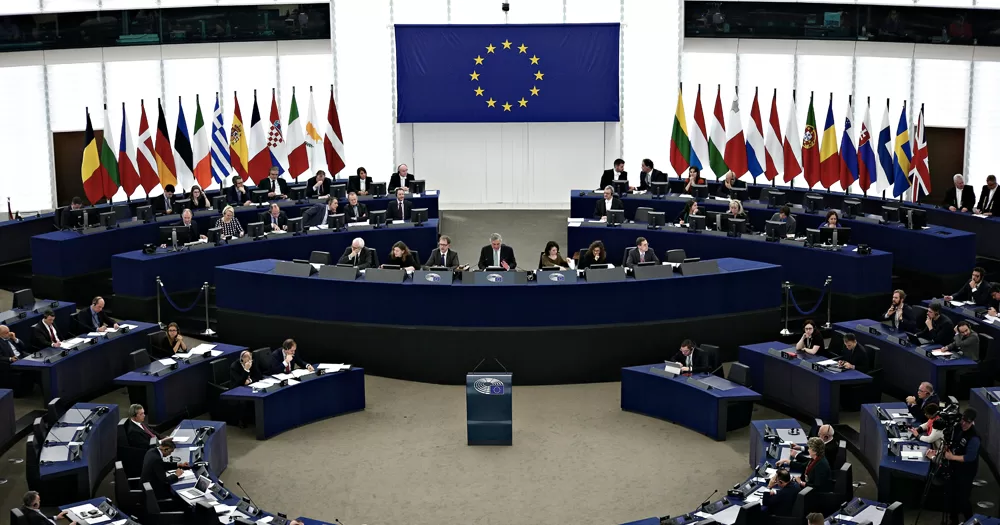The 2024 European Parliament elections, set to take place in June, will see a “surge” in support for far-right and populist parties, according to a new report. The shift is due to far-right politics breaking through into the mainstream in several European countries in recent years and is set to have ample consequences on major EU policies.
Based on data from the European Council on Foreign Relations think tank, the report – published by Simon Hix of the Europe University Institute and Ireland Thinks’ Kevin Cunningham – investigated probable voting patterns ahead of the elections. It compared votes gained by each party in the 2014 and 2019 elections to any difference from opinion polls to predict which parties are likely to win seats in June.
As the findings show, Austria, Belgium, Czechia, France, Hungary, Italy, the Netherlands, Poland and Slovakia are all expected to see anti-European, right-wing and populist parties gain a majority of votes in the upcoming elections. These member states have all seen a surge in far-right politics over the past few years, which is likely to lead to a “sharp right turn” in the balance of power in the European Parliament.
In Italy and Hungary, the ruling far-right parties led by Giorgia Meloni and Viktor Orbán have repeatedly introduced and implemented policies against LGBTQ+ rights, using anti-LGBTQ+ rhetoric to gain votes and surge to power. The rise in far-right influence domestically and the fact that it is expected to bring about a shift in representation also in Brussels and Strasbourg should serve as a “wake-up call” for EU policymakers, the authors of the report said.
They also added that the consequences of this year’s elections could be “far-reaching”, also influencing major policies such as the EU’s Green Deal and impacting crucial areas such as migration, EU enlargement and support for Ukraine. It is likely that after the elections, there will be a majority in the European Parliament that supports very restrictive immigration policies, which could heavily reform the EU’s asylum policy framework.
In Ireland, far-right politics have not broken through into the mainstream yet. Despite the fact that there have been several anti-migration and anti-LGBTQ+ protests all over the country in the past year, no major or minor far-right parties have managed to be represented in the Oireachtas.
Moreover, according to the latest Eurobarometer report, 83% of the Irish population holds positive views about the future of the EU. This is the highest ranking among all 27 EU member states, with an average of 61%.
© 2024 GCN (Gay Community News). All rights reserved.
Support GCN
GCN is a free, vital resource for Ireland’s LGBTQ+ community since 1988.
GCN is a trading name of National LGBT Federation CLG, a registered charity - Charity Number: 20034580.
GCN relies on the generous support of the community and allies to sustain the crucial work that we do. Producing GCN is costly, and, in an industry which has been hugely impacted by rising costs, we need your support to help sustain and grow this vital resource.
Supporting GCN for as little as €1.99 per month will help us continue our work as Ireland’s free, independent LGBTQ+ media.

comments. Please sign in to comment.